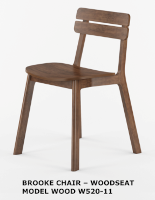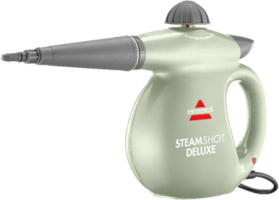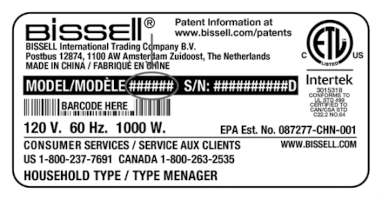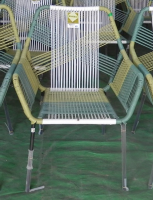
THIS SECTION IS FOR NEWS AND INTERESTING STORIES RELATED TO FOOD, NUTRITION AND FOOD PROCESSING. THEY ARE NOT NECESSARILY RELATED TO KOSHER BUT MAY BE OF INTEREST TO THE KOSHER CONSUMER, MANUFACTURER OR MASHGIACH.

July 11, 2024 from FDA:
Urban Outfitters Inc.is recalling Elin Dessert Plates because of elevated levels of cadmium in plates. The recalled plates are lilac in color with orange mushroom, moth, and fern motifs. The plates measure 21 cm (8.25 inches) in diameter and have scalloped edges. Plates sold individually in store.
July 24, 2024 from Times of Israel:
"Eating Bamba, Israel’s quintessential peanut-butter-flavored snack, is proven to reduce peanut allergies in children by 75 percent, according to a recent study in the prestigious New England Journal of Medicine, bearing out what many Israelis already know.
"The longitudinal study began in 2008 when a group of British and Israeli researchers were intrigued by how peanut allergy in Israeli children was significantly less common compared to Jewish children in the UK with similar genetic backgrounds.
"They hypothesized that the low level of peanut allergy in Israeli children resulted from their high level of peanut-flavored snacks from an early age. They set out to test it, eventually proving right their hypothesis.
"pproximately 640 infants, aged 4 to 11 months, who showed a tendency to develop various allergies such as eczema and egg allergy were selected for the study. Half of those infants were already sensitive to peanuts; half were not.
"Each group was then divided into two – infants who regularly ate Bamba until the age of five and those who did not.
"When the infants turned five years old, the researchers found that only 10% of those who ate Bamba developed a peanut allergy; 35% of the children who avoided peanuts developed the allergy.
"In the follow-up study, researchers again checked the children, who had turned 12.
"They found similar results. In the group that avoided peanuts, 15.4% of participants had developed a peanut allergy. In the group that consumed peanuts, only 4.4% had the allergy. That means that the prevalence of peanut allergy among the children who avoided Bamba was about three times higher than those who ate the snack.
"Yet no study explains why some children get peanut and other food allergies and others do not."
July 20, 2024 from The Portugal News:
"The Food and Economic Security Authority (ASAE) carried out an inspection operation at a vegetable oil extraction and refining industry in Torres Novas, which resulted in the seizure of 18,200 litres of cooking oil and 177,690 labels mentioning olive oil, with strong suspicions that this cooking oil would be marketed as olive oil.
"In view of the evidence of fraudulent practices, a criminal case was opened on suspicion of fraud involving goods and an administrative offense case was initiated due to poor hygiene and structural conditions, with the immediate suspension of the activity being ordered."

July 25, 2024 from CPSC :
Wood dining chairs have been recalled because the recalled chairs can shift, break or collapse, posing a fall hazard to consumers.
Consumer Contact: Grand Rapids Chair Company toll-free at 866-453-4748 Ext. 147 from 8 a.m. to 5 p.m. ET Monday through Friday, email at retrofits@grandrapidschair.com, or online at www.grandrapidschair.com/customer-service/product-safety-recall-brooke/ or www.grandrapidschair.com and click on “Brooke Recall” for more information.
Description: This recall involves Brooke model chairs including: all wood dining chairs in several styles, including partially and fully upholstered seats, and fully upholstered seat and back. The model numbers W520, W520-11, W520-21, W520-31, and W520-33 can be found on the original order confirmation or invoice. If not available, reference the Special Order Number (“SO#”) found on the white sticker on the underside of each chair. A list of affected special order numbers can be found at www.grandrapidschair.com/customer-service/product-safety-recall-brooke/.
Remedy: Consumers should immediately stop using the recalled wood dining chairs and contact Grand Rapids Chair Company for a free repair, by Grand Rapids Chair Company personnel at the consumer’s location.
Sold At: Made to order via special orders from January 2020 through June 2024 for between $450 and $1,015.

July 25, 2024 from CPSC in conjunction with Government of Canada:
Lancaster Table & Seating Standard Height Plastic Restaurant High Chairs have been recalled because the T-bar located at the front middle of the chair can become loose and fall or break off while the high chair is in use, posing a fall hazard to children.
Consumer Contact: Clark Associates at 800-285-8172 from 9 a.m. to 5 p.m. ET Monday through Friday, email at highchairs@lancastertableandseating.com, or online at https://www.lancastertableandseating.com/recalls/plastic-high-chairs-recall or https://www.lancastertableandseating.com/ and click on “Product Recalls” at the bottom of the homepage for more information.
Description: This recall involves 12 models of Lancaster Table & Seating Standard Height Plastic Restaurant High Chairs. The plastic high chairs are brown, black or gray, and were sold in either assembled or ready-to-assemble form, with or without wheels. The item number is printed on the warning label found on the back of the seatback. The item numbers included in the recall are:
The list of recalled products is at here
Remedy: Consumers should immediately stop using the recalled high chairs and contact Clark Associates for a full refund. Consumers should register their product online at https://www.lancastertableandseating.com/recalls/plastic-high-chairs-recall and dispose of the product in accordance with local and state recycling laws.
Sold At: The Restaurant Store nationwide and online at www.therestaurantstore.com, www.webstaurantstore.com, www.clarkfoodserviceequipment.biz, www.quicksupply.com, and www.hometownprovisions.net from June 2014 through January 2024 for between $65 and $135.
February 23, 2023 from the CPSC in conjunction with Heathy Canadians:
Lancaster Table & Seating brand High Chairs have been recalled because the high chairs can break, posing a fall hazard to children.
Consumer Contact: Clark Associates at 800-285-8172 from 9 a.m. to 5 p.m. ET Monday through Friday, email at highchairs@lancastertableandseating.com, online via direct link at www.lancastertableandseating.com/recall or at https://www.therestaurantstore.com or https://www.webstaurantstore.com and click on Safety Recall located on the bottom of the page for more information.
This recall involves Lancaster Table & Seating brand high chairs. The high chairs have black, mahogany, natural or walnut finishes and were sold in either assembled or ready-to-assemble form. Only high chairs manufactured in China are affected. “Made in China” or “made in ____” is printed on the warning label found on the front of the seatback and on the product label found on the underside of the seat bottom. The model number is printed in the label on the underside of the seat bottom.
| Assembled | Ready to Assemble |
| 164HIGHCBK | 164HIGHCKDBK |
| 164HIGHCMO | 164HIGHCKDMO |
| 164HIGHCNAT | 164HIGHCKDNT |
| 164HIGHCWN | 164HIGHCWN |
Consumers should immediately stop using the recalled high chairs and return them to any of the Restaurant Store locations in Pennsylvania, New Jersey, Delaware or Maryland or contact Clark Associates for a free replacement or refund in the form of a store credit and instructions on how to properly discard the product. Consumers will be asked to submit a photo of the dismantled or destroyed product and dispose of it.
Sold At: The Restaurant Store and online at www.therestaurantstore.com and www.webstaurantstore.com from January 2022 through September 2022 for between $43 and $65.
July 24, 2024 from the MK:
"Earlier this month, MK Global Kosher Certification Agency (MK) and the Kashruth Council of Canada (COR), the two largest Canadian kosher certifying agencies, the Centre for Israel and Jewish Affairs (CIJA), the public affairs and advocacy agent of the organized Jewish community, and various Jewish community stakeholders sought the suspension of new CFIA guidelines that have been significantly impacting the viability of shechita (ritual kosher slaughter).
July 10, 2024 from the The Hamilton Spectator:
"A group of agencies that certify Kosher meat are in court today to ask for an injunction against Canadian Food Inspection Agency guidelines for the ritual slaughter of animals.
"Kosher meat calls for animals to be slaughtered without first being stunned.
"While the Kosher method of slaughtering animal for meat is allowed in Canada, the food inspection agency posted guidelines in 2021 outlining how abattoirs must determine if an animal is unconscious and can no longer feel pain.
"The Kosher groups argue that achieving the criteria is seriously slowing down production to the point abattoirs no longer want to provide the service, and has reduced access to Kosher meat in Canada."
A letter from the CIJA, COR and MK is here
January 10, 2024 from NoCamels:
"As overfishing takes its toll on marine life in waters across the planet, an Israeli company is determined to harness technological know-how to save some species from the brink of extinction – including the most expensive one in the world per pound.
"Wanda Fish extracted cells from three different species – bluefin tuna, mackerel and yellowtail – in order to cultivate them in the lab, and its most advanced product is the pricey bluefin.
"The tuna can even go for up to $5,000 a pound due to those risks of extinction and overfishing and also because of the high market demand in places such as Japan.
"Wanda Fish cultivates the extracted cells in bioreactors – specialist vats that create an optimal environment – until they reach immortal status, in other words are continuously reproducing.
"Wanda Fish then places the cells into cultured media – the essential nutrients and minerals that support growth. From there, the company uses its own undisclosed technology to cultivate the cells into both muscle and intramuscular fat of a bluefin tuna.
"Once the cells are transformed, Wanda Fish combines them with proprietary plant-based material to create a hybrid final product – one of the ways the company is reducing costs and a step that Sfadyah describes as “a very complex process.” He also insists that it is one currently carried out by most, if not all food cultivation companies.
"And despite the inclusion of the plant-based material, Sfadyah believes that the company’s product is identical in every way to the original thanks to the unique fat and muscle combination Wanda Fish cultivates.
"This, he says, even applies to one of the trickiest parts of cultivating such premium fish – striking the right balance between taste and texture.
"For unlike other tunas, bluefin has a melt-in-your-mouth texture with what many chefs say is a rich flavor that works perfectly for sashimi (a kind of sushi).
"The company is also trying to remove the need for chefs to have to clean and cut the fish when it arrives at their restaurants, reducing food waste and shortening preparation time for diners."
July 9, 2024 from NoCamels:
"Ofek Ron, co-founder and CEO of Israeli food tech company Oshi, believes we can do better – for the environment, for animals and for our health.
"So three years ago, the entrepreneurial long-time vegan and activist set out together with the company’s fellow co-founders — 3D printing expert Hila Elimelech, and Oshi’s current innovation lead Ariel Szklanny and director of food R&D Ron Sicsic — to create the world’s first plant-based fish filet with the taste and texture of the original.
"The company, formerly known as Plantish, selected salmon filets as its goal because of the fish’s popularity with consumers, Ron tells NoCamels. Ofek Ron: Oshi is ‘building’ salmon filets as you would build a Lego model (Photo: Courtesy)
"Ron says he realized that there was no fish alternative among the plant-based meat alternatives popping up, largely because the texture and structure of fish differs to that of meat.
"Therefore, unlike the relatively straightforward task of creating vegan burgers that mimic ground meat with ingredients like soy or mushrooms, the challenge of imitating the complex structure of fish filets presented a unique obstacle.
"Fish filets possess intricate layers of flakes and fat lines, each contributing to its unique texture and mouthfeel, Ron explains, and no one in the food tech industry had yet tackled the problem of replicating it with plant-based alternatives.
"t took the Oshi team three years of diligent, expert work on two fronts of research and development to create both the right texture and the right taste for the alternative salmon filet currently being market tested in 15 select restaurants across the USA.
"Their solution lay in mycoprotein, a mycelium-based protein that also provides micronutrients, complemented by algae and vegetable oils.
"This innovative blend not only mirrors the nutritional profile of fish but also replicates its texture through Oshi’s proprietary technology known as modular layering.
"Ron explains that the flakes and the fat of the fish are created using two different methods and then combined in the production process.
"The startup’s unique machinery meticulously constructs each filet, layer by layer of flakes and fat, ensuring an authentic fish-like experience.
"The company is now in the process of refining its product-market fit before expanding into retail sales, he says.
"The plant-based filets are a solution for an industry that Ron warns is taking an environmental toll on the marine ecosystem.
"Backed by $14.5 million in funding from investors and poised for further investment rounds, Oshi has relocated its production facility to California from its initial base in the central Israeli city of Rishon Lezion, which remains as the center of research and development.
"The company was also recently recognized as one of Israel’s top 50 promising startups of the year by Israeli tech website Calcalist, for its pioneering efforts in food tech.
"For now, the cost of the Oshi filet is equivalent to premium salmon filets from the Faroe Islands and Alaska, Ron says, with the price connected to the speed of the company’s production process.
"But as they systematically update and upgrade their machinery, he believes they will reach the optimum price in about three years.
"Rather than trying to recreate other existing kinds of fish, Ron says Oshi’s next goal is to create a new “species” of plant-based fish.
"This, the company maintains, will appeal not only to the environmentally aware consumer, but also those who like to try something completely new rather than something that merely imitates an existing product."


July 18, 2024 from CPSC in conjunction with Government of Canada:
BISSELL® Steam Shot™ Handheld Steam Cleaners have been recalled because the recalled steam cleaners can expel hot water or steam onto users while heating or during use, posing a burn hazard.
Consumer Contact: Contact BISSELL toll-free at 855-417-7001 from 9 a.m. to 9 p.m. ET Monday through Friday and 9 a.m. to 8 p.m. ET on Saturday, email RecallNA@bissell.com, or online at www.BISSELL.com/steamshotrecall or www.BISSELL.com and click on “Product Recalls” for more information.
Description: This recall involves multiple models of the BISSELL Steam Shot Handheld Steam Cleaners in the model series 39N7 and 2994. “STEAM SHOT” or “POWER STEAMER” is printed on the side of the product. The model numbers are printed on the product rating label located on the bottom of the unit. Colors include green, pink, blue, orange, white, black, purple and red.
Remedy: Consumers should immediately stop using the recalled steam cleaners, and contact BISSELL to receive either a $60 credit to be used towards a BISSELL.com purchase, or a $40 refund for each of the recalled steam cleaners. Consumers should visit www.BISSELL.com/steamshotrecall to register for the recall, and for instructions on how to cut the cord and take and upload a photo of the steam cleaner showing the model number and cut cord.
Incidents/Injuries: BISSELL has received 183 reports of hot water or steam escaping from the product, including 157 reports of minor burn injuries.
Sold At: Target, Walmart, and other department and home goods stores nationwide, and online at www.bissell.com, www.amazon.com, www.hsn.com, and other websites from August 2008 through May 2024 for between $35 and $40, or $70 for a two-pack.

July 11, 2024 from CPSC:
Metal-framed Armchairs have been recalled because the armchair’s leg can bend or break, posing fall and injury hazards..
Consumer Contact: Ross Stores at 800-335-1115 from 9 a.m. to 9 p.m. ET Monday through Friday, email at customer.inquiries@ros.com, or online at www.rossstores.com/recalls or www.rossstores.com and click on “Legal Notices & Recalled Products” on the bottom of the page for more information.
Description: This recall involves wicker-style armchairs with plastic cross weave on the seat, back and sides, and dark metal frames. The recalled armchairs were sold in green/white color combination (SKU number 400266563392) or in gray/white color combination (SKU number 400266563330), and measure about 33 inches tall, 28 inches deep, and 26 inches wide. The SKU number can be found on a sticker attached to the chair’s leg, and on a hangtag attached to the back of the chair.
Remedy: Consumers should immediately stop using the recalled armchairs and return them to any Ross store. Consumers will receive a full refund or a $50 store credit. No purchase receipt will be required.
Incidents/Injuries: The firm has received five reports of the chair legs breaking; four resulting in minor injuries, including soreness and contusions.
Sold Exclusively At: Ross stores nationwide from February 2024 through April 2024 for about $50.
| The information posted is from secondary sources. We cannot take responsibility for the accuracy of the information. |
| Comments to webmaster@kashrut.com
© Copyright 2024 Scharf Associates |
|
|||||||||||